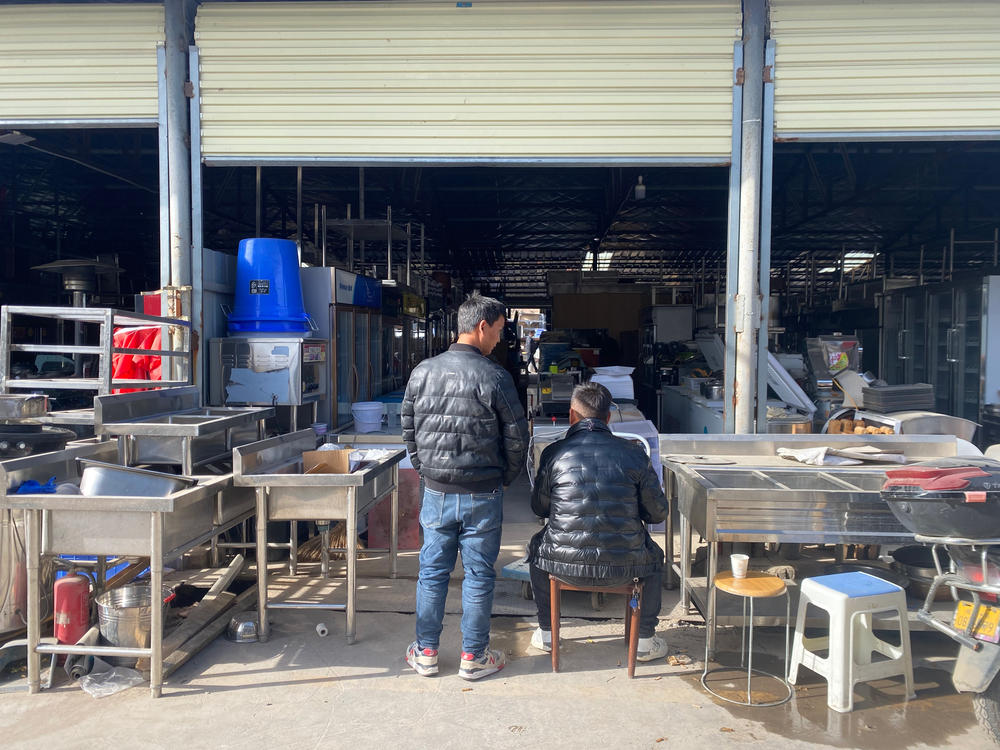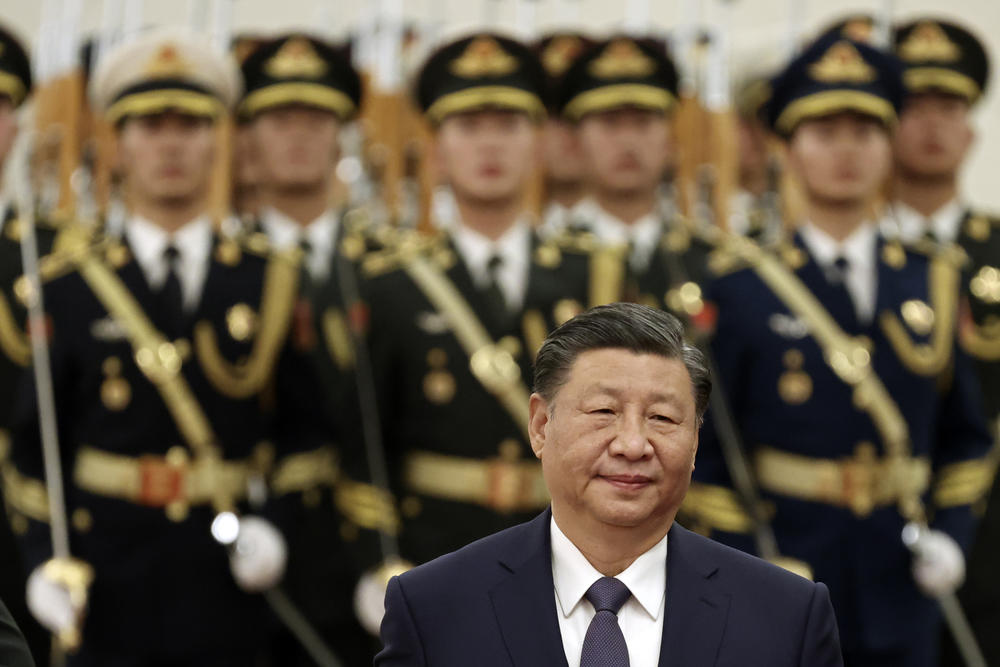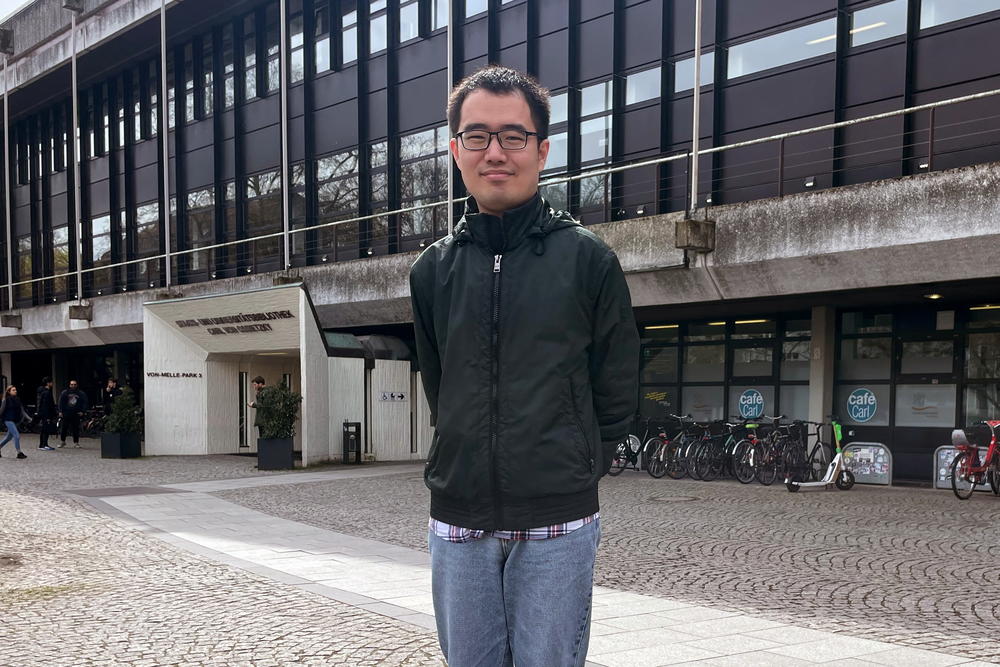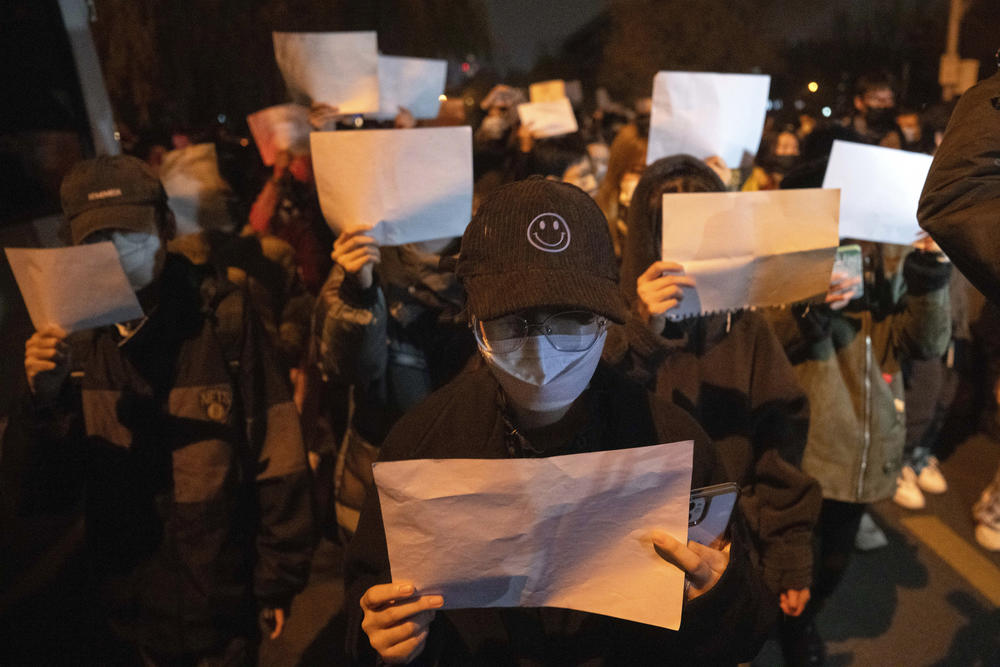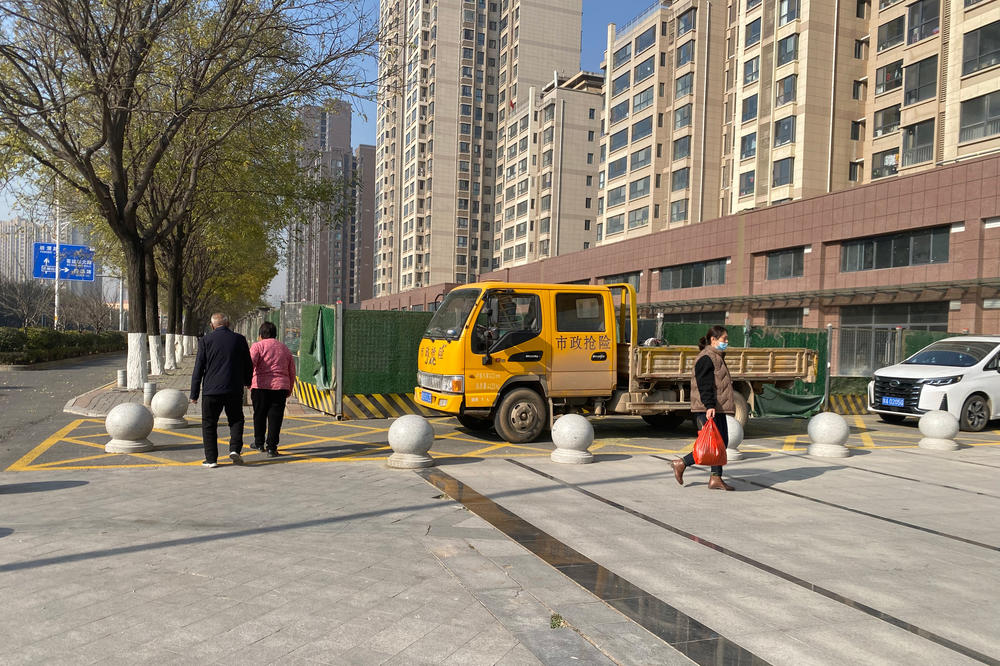Section Branding
Header Content
A year after China ended its harsh COVID policies, it's struggling to rebound
Primary Content
BEIJING — On the northern edge of Xi'an, a 45-year-old man surnamed Jiang tells a typical story of dream-chasing in China's reform era.
He left his home village at the age of 18 to work in a diamond factory in southern China's Guangdong province, a manufacturing juggernaut. The pay was decent, he says, but after a decade he was restless. So he returned home, where he started a small construction equipment rental company.
Business was fine, he said, until state-backed competitors began attracting all the contracts. So he moved again, this time to the northwestern city of Xi'an, China's onetime imperial capital, now home to 13 million people.
"My hopes were big," he says, sitting in the back of the secondhand kitchen appliance shop that he runs with his family, surrounded by refrigerators, stoves and blenders. "Slowly, though, they have been obliterated."
A year ago, China lifted draconian COVID restrictions that were an anvil around the neck of the economy and placed unprecedented controls on a society that, for the previous four decades, had grown accustomed to expanding personal freedoms, not shrinking them.
Many expected the country to bounce back quickly, with economic growth reverting to a slower but respectable mean. That hasn't happened. And as 2024 approaches, there is a crisis of confidence in China that the authorities appear to be doing little to address, instead nibbling at the edges of policy and avoiding bold steps to revive the economy and regain public trust in policymaking.
Jiang is one of several people NPR recently spoke with to try to gauge the mood in post-pandemic China and highlight how things have changed over time.
For Jiang, who did not want his full name used for fear of possible repercussions for speaking candidly to a foreign reporter, economic conditions are actually worse now than during the pandemic, when he started the appliance business, he says. He isn't selling as much as he used to.
Like many in China who have been conditioned to avoid publicly criticizing the ruling Communist Party, he chooses well-worn rhetoric absolving the leadership when asked if he thinks policy might be to blame.
"Whatever the national policy, it's meant to do good for the country and the people. You can't deny that," he said. "But as they say: The higher-ups have their policies and the lower-downs have their ways of getting around them. ... Each policy that comes from the top is discounted on the way down, and then discounted again as it goes down line. The policies are definitely good, but when they get down to the local level, they've completely changed."
At this point, Jiang's ambition — the same drive that, multiplied across hundreds of millions of people, fueled China's economic rise — has been sapped.
A European executive sees the Communist Party become more dominant in business
In Beijing, Joerg Wuttke has had a front-row seat to China's spectacular rise. He first came to the country as a businessman from Europe 41 years ago.
"When I was coming in '82, people took pictures with cars and paid for the picture. And now we have 5 million cars in Beijing. So it's a completely different country, with upsides but also with it downsides," he said. (The Beijing government said that at the end of 2022 there were, in fact, more than 7 million motor vehicles registered in the city, and over 12 million drivers.)
I first met Wuttke a little over 20 years ago, when our offices were in the same building near Beijing's Liangma River. China had just joined the World Trade Organization. The reform-minded Zhu Rongji was premier.
"It was a China which actually was very open and could sort of give us some indications of where we're heading, you know, to a more open, liberal society. Globalization would be coming into town," said Wuttke, who has been doing business here for most of the past four decades, and lobbying for European companies as head of the European Chamber of Commerce for part of that time.
Today, he says, the Communist Party has become more dominant across society than he thinks it was when he first came to China — before reform and opening really started to take off.
"For Xi Jinping, it's clear ideology trumps the economy," he says of China's current leader.
He says that's underpinned an intrusion of politics into business.
"You have party cells coming up into Chinese private enterprises. You have a far more [and] stronger party awareness on TV or radio than it was maybe in '82. So, yeah, it's, it's more ideologically driven these days than it was 40 years ago," he said.
Combined with geopolitical frictions, Wuttke says it has become "far more complex" to steer any company in China.
In November, quarterly data showed that foreign direct investment in China contracted for the first time on record. Business confidence is down, and the real estate sector is struggling, underpinning weak consumer confidence. The future is less certain than it always seemed to be. The World Bank forecasts that China's GDP growth will slow sharply in the next two years.
"I think the opening-eye moment for me came in 2022," Wuttke says. It was a year when the government hewed for too long to an unbending and unforgiving zero-COVID policy that involved heavy travel restrictions, snap lockdowns and forced quarantines. Wuttke is leaving China, though he says his decision has nothing to do with current events.
A high school teacher leaves the country after lockdown
In Shanghai, that policy turned a high school teacher into an exiled dissident.
Huang Yicheng taught Chinese language and literature in a northwestern suburb of the country's most cosmopolitan city. He says he was always in favor of the idea of more freedom, but as someone who grew up in China, human rights wasn't something he spent much time thinking about.
Instead, "if I could live normally, go to work, have some fun, be with my family, make some money, eat, then it'd all be fine," he said.
But in the spring of 2022, the omicron variant of COVID-19 arrived and the Shanghai government ordered its 26 million residents to stay home to stop the spread. A lockdown that the authorities said would last about a week stretched for two long months.
Huang says being forcibly confined to his home felt like living on an animal farm. He felt unsafe being locked in his apartment with no control, and no end in sight. "It was really scary," he said. "It didn't feel safe."
And it changed something inside him.
"Before the lockdown, I thought Shanghai would be fine," he said. "There was a lot of bad news about the pandemic, and I knew things weren't great, but I thought bad things could happen in other places but Shanghai still had hope."
When his city was locked down, he lost faith.
"I thought everything was fake. The security and order and freedom, it could all be taken away. So I had no faith in this government, in this political system."
Later that year, when protests erupted in Shanghai and elsewhere in China against the draconian COVID policies, Huang got involved. The demonstrations became known as the White Paper Revolution, because many participants took to brandishing blank pages of A4-size paper to symbolize all that could not be said publicly in China.
"The white paper movement really made me feel hopeful," he said. "Finally, Chinese people were coming out to resist."
He joined a crowd at an intersection in Shanghai's former French concession neighborhood, where protests had taken place the previous night. Huang says he mostly hung back. But when police cleared protesters that night, he was grabbed, roughed up and briefly detained.
Months later, after lying low, he fled to Germany.
"I had never really thought of leaving. Really. I thought, if this country's not good, you don't necessarily need to leave it. You can stay and do some small things to make change," he said.
Instead, the pandemic changed him.
A man finally moves into a home he bought nine years ago — but says his dreams are dashed
Back in Xi'an, a man whom NPR first talked with a year ago is settling into his new home.
Last year, Lee Shin was squatting in an unfinished apartment he had bought nine years earlier. It was on the 28th floor and there was no electricity.
"We used a tank gas stove, and we had to fetch bottles of water from downstairs," he said. (Lee Shin is a nonstandard Romanization of a nickname he asked NPR to use because police have pressured him not to speak publicly about the construction problem at his apartment complex.)
Not long after Lee bought the unfinished apartment, construction stopped when the property developer allegedly lost money in other investments.
The problem of unfinished apartment complexes is widespread in China — and the projects are called lanwei lou, Chinese for "rotten tails."
This year, the building was finally completed and Lee and his wife could fully move in. But after so many years of uncertainty, it was a letdown.
"So when we got the key and opened the door, there was no feeling of excitement. When we went in, we just wanted to cry," he says.
His life plans — for an early wedding, for kids — were set back by years. And home prices have been falling in China amid a slow-motion crisis unfolding in the property sector, driven in part by government policies. It's unclear how the authorities will manage the fallout from collapsing developers and falling home prices.
But now, finally in their new home, surely things were looking up for Lee and his wife?
He says he has more peace in his life, for the most part. But work is bad in his field of interior design because of the property downturn, and his ambitions have been tempered. Among other things, he says he does not want to have a child now.
"I don't have any aspirations, and I don't think I want to have any aspirations anymore," he said. "None of my wishes have come true."
Aowen Cao contributed reporting from Beijing.
Copyright 2023 NPR. To see more, visit https://www.npr.org.
